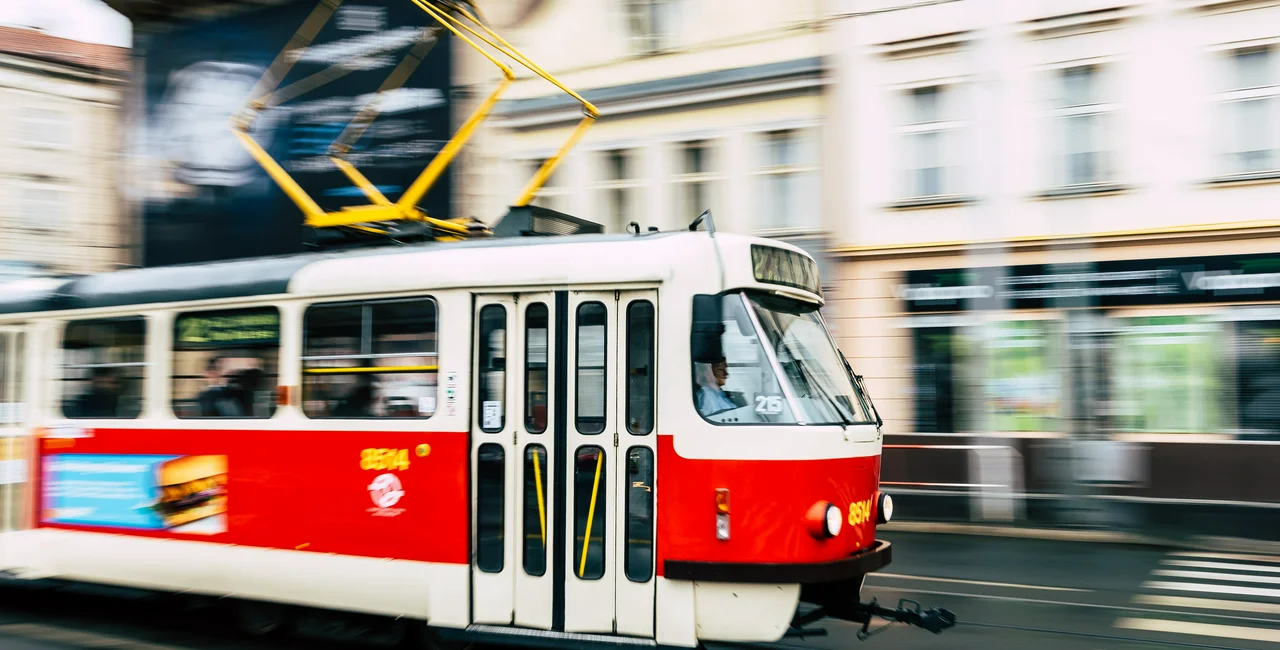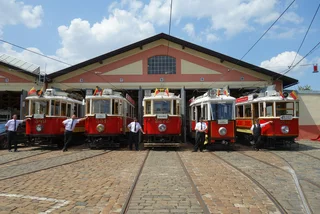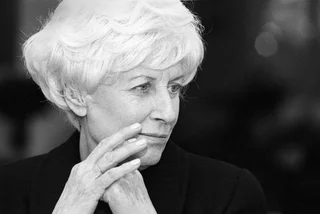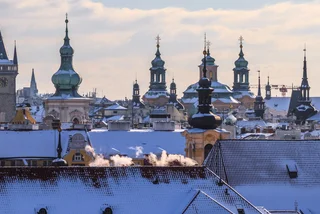Public transit operations in Prague are returning to almost pre-pandemic levels. The change coincides with the end of summer holidays and start of the new school year. New train and tram schedules took effect Aug. 28, and bus schedules will start Sept. 1.
Separately, starting on October, people with monthly or annual transit passes will be able to use bikes for free for 15 minutes.
Prague Integrated Transport (PID) expects a significant increase in passenger numbers. A vast majority of evening services canceled due to coronavirus restrictions will also be returned on train and bus routes in the Central Bohemian Region.
The shortest intervals between trains will return to the metro lines in the morning. On line A it will be 150 seconds between trains, on line B 140 seconds, and on line C 115 seconds. Trams at peak times will run every eight minutes, while backbone lines 9, 17, and 22 will run every 4 minutes.
For the backbone city bus lines, the morning intervals will be shortened to the usual six minutes, and on selected lines as little as 5 minutes. Compared to the pre-holiday period, at peak times there will be about 15 percent more bus connections.
Due to continuing lower evening and night numbers of passengers, slight restrictions on the bus line 119 to Václav Havel Airport will remain in force, including extended evening intervals between 9 pm and 10 pm. Night trams and buses on weekends will meanwhile not be increased.
The Prague Public Transit Company (DPP) also announced that people will now have to push buttons on tram and bus doors on all routes as of Sept. 1.
“The opening of the door at the entrance or exit will be controlled using the buttons. Eliminating the mandatory opening and closing of all doors at stops where no one gets in or out will help to maintain thermal comfort in vehicles in the coming colder period. In addition, it will help ensure more accurate operation,” DPP said on Facebook. Metro train doors will continue to open automatically.
In the Central Bohemian Region, from Sept. 1, in addition to the renewal of school connections, most of the last evening connections of suburban bus lines will be restored, as will evening trains on the S backbone lines after 9 pm. The operation of express trains on the R41 line from Prague to Kolín will also be resumed. Some night train services on weekends and select regional bus lines will not be restored to previous levels, however.
The beginning of the new school year will also include some permanent changes to PID lines. In Prague, these are only minor changes, such as the modification of the route of bus line 187 and establishment or change of the names of selected stops. As of Aug. 28, the Výstaviště Holešovice stop will be renamed Výstaviště. The Černokostelecká stop will be renamed Nové Strašnice and the existing Nové Strašnice stop will be renamed Limuzská.
For suburban and regional lines, selected connections are being modified based on the requirements of individual cities, municipalities and passengers. Details can be found on the PID website.
Free bike rental starting in October
People with a monthly or annual transit coupon will be able to use a shared bike for free for 15 minutes. The idea is intended to make the trip to or from a transit stop more convenient, and also to build up more interest in travel coupons.
“From October, we will start testing the interest of Praguers with a trial operation, and we expect to offer e-bikes as well,” Prague Deputy Mayor Adam Scheinherr said on Facebook.
After a few months, the city will evaluate the project to see if there is sufficient interest for it to continue. All providers of shared bicycles in Prague will be able to participate in the project if they sign a memorandum of cooperation.
“Would you take the opportunity to approach a public transport stop by bike on the way to work or for fun? This is why we have started to add bicycle stands to metro stations on a large scale, and we are also preparing them at tram interchanges,” Scheinherr said.
Prague tried a similar project on the route by Vyšehrad when the tracks were being renovated. People could use bikes for 15 minutes as an option to get around the construction area.












 Reading time: 3 minutes
Reading time: 3 minutes 































